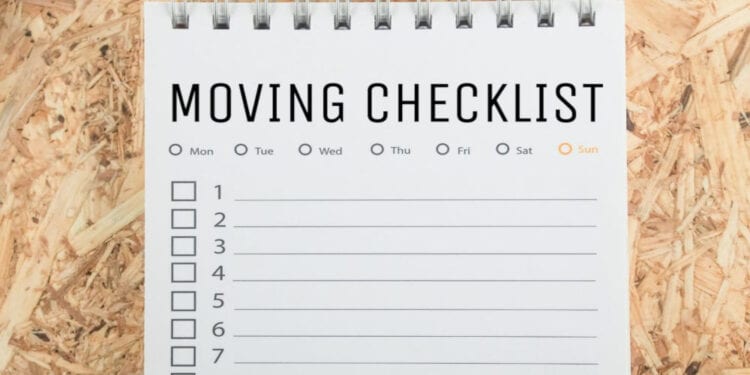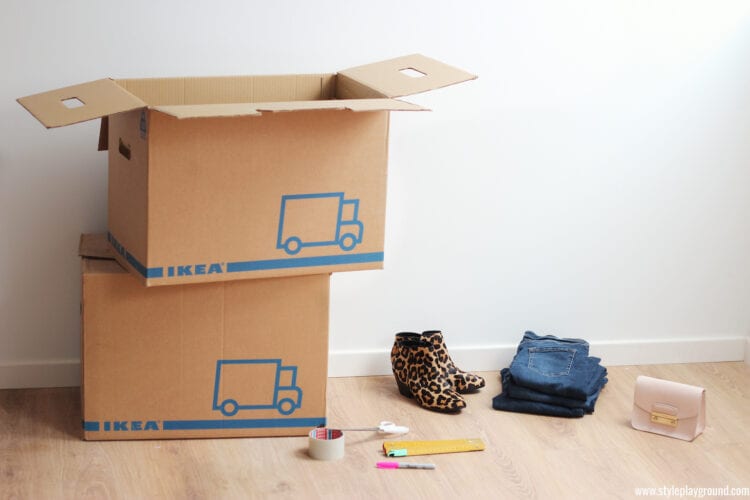Moving your whole household can be a very stressful task, taking up a lot of time and even more money. To take some load off of your shoulders, we put up a list that might help you make the process go a bit smoother.
1. Stuff that you don’t need

Before you start packing get rid of the clutter and stuff that you don’t need. Sort through your clothes, shoes, bags, and old coats, pack them into separate boxes and take them to charity organizations. If you didn’t wear those pants in a few years, chances are that you never will. So, except if things have some emotional value to you personally, eliminate it from your packing list. If you come across some things that you think you can sell, pack them in separate boxes and label it. You’ll reduce packing time and moving costs with fewer boxes.
2. Sort things out
Sort things by categories; pack up books in one box, winter clothes in another, and so on. If you have small rooms in your previous home, like the laundry room, pack everything from it in one place and label it. That will make the unpacking easier.
3. Storage
Maybe you’re moving to a smaller space, or just don’t want to trash all the stuff that you don’t need? In that case, rent a storage space before you start packing, and move all the unwanted items there. All of it – donations, items to sell, old books, old pictures, etc. Everything that you’re not ready to say goodbye just yet, you can store at Stor It Ez. This can easily cut your workload in half.
4. Hire a moving company

Weeks before you start packing, you’ll probably need to hire a moving company. There are thousands of them claiming to be professional movers when in reality it can just be a guy with a van. It’s important to do this in advance so that you can take your time in peace to research. Read their insurance and liability policies carefully in case of damaged items. Don’t skip the fine print either and read through to check for any hidden costs. Moving companies charge more if you pick a weekend for your moving date, so if you have a flexible schedule try to work around that. Also, a few days before the truck arrives, check out for any roadblocks, construction, or jammed routes. It’s useful to figure out your moving truck path in advance avoiding getting stuck in the traffic.
5. Make a list

Making a moving to-do list in advance can help you out a lot. Write everything down, no matter how insignificant it seems at the moment. Things like working hours of the home stores, charity organizations to take your stuff to, or simply where you put the screws from that cabinet doors. No one can remember everything, especially in a hurry. Just please, once you make the list, don’t lose it. That can help too.
6. Boxes
Moving supplies can make a dent in your budget quickly. Boxes, tapes, bubble wraps, and wrapping papers can add up in no time. To save a bit check out your local stores, like liquor stores, that have large boxes at their disposal. Further, if you saved the original boxes from your electronics, now is the time to reuse them. For a packing paper try to find some old newspapers, towels, or blankets to wrap fragile items. Heavy items, like books, should be packed in smaller boxes so that they don’t exceed the carrying weight. Cover your cosmetic bottles in a saran wrap, or pack each separately in zip bags. Pack dishes from the kitchen vertically in the box, wrapping them in paper or bubble, since this will make it easier to unpack. Quick tip – always use industrial-strength tape to close your boxes since the regular one can give up easily adding to your stress level.
7. Utilities
Call upfront to disconnect utilities, cable, internet, phone, and everything else you have hooked up in your old place. Try to schedule the disconnection date as close to your moving day as possible. Also, don’t forget to move your services to a new house or an apartment. Moving utilities takes days, so be prepared that you might have none for some time, especially cable and internet. Also, make sure that you return your receiver to the cable company; forgetting this can cost you dearly.
8. Expensive items
If you have some valuables, like paintings and crystal, make sure to pack them carefully in advance and label them clearly, on every side of the box. Movers will handle these boxes with special care only if they are aware of it. Also, ensure that the items are packed properly, for example, don’t pack oil paintings in the paper that will stick to them, etc. Further, a box with fragile items needs to be packed tight, without any loose stuff inside that could break. Movers sometimes refuse to take them.

9. Change your address
This is one thing that slips everyone’s mind until they are weeks into their new place. Do you notice how there’s no mail delivered to your new address? Changing your address online takes a few minutes, and doing it a week in advance will spare you extra work at the last minute.
10. Pack essentials separately
Things like your toothbrush, comb, medicine, a few glasses, spoon, towel, and everything else that you might need on that first day in your new home, without having to unpack every single box. Put them separately, so that you have everything in one place.

11. Stop buying food
About a week before your move, stop buying groceries, especially perishable foods like fruits and veggies. Movers won’t pack this in their truck, and you will have to throw them away. Instead, a few days before moving guys arrive, make meals out of the groceries you have. If you still have some food left try offering it to your past neighbors or friends.
As you can see, a key to a stressless move is a good organization and doing everything you can in advance. It does take time, but you can split it, and pack for an hour a day for a couple of weeks. In any case, you’ll get everything done. Congratulations on your new place!

